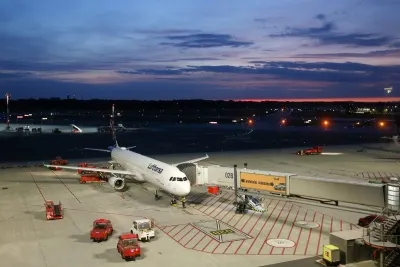Have Lufthansa and Air France Changed Their Routes Due to the Pahalgam Attack?

Synopsis
Key Takeaways
- Air France and Lufthansa have stopped overflying Pakistan due to safety concerns.
- The Pahalgam terror attack has escalated regional tensions.
- Flight times may increase as airlines take longer routes.
- Other airlines are also rerouting to avoid Pakistani airspace.
- Financial repercussions for Pakistan are anticipated due to reduced overflight fees.
New Delhi, May 5 (NationPress) In light of the escalating tensions in the region following the tragic Pahalgam terror attack that resulted in the deaths of 26 individuals in Jammu and Kashmir, major international airlines Air France and Lufthansa have ceased operations over Pakistani airspace to prioritize the safety of their flights.
In an official statement, Air France announced that "in light of recent tensions between India and Pakistan, the airline has opted to stop overflying Pakistan until further notice."
Meanwhile, Lufthansa also confirmed that its flights are "steering clear of Pakistani airspace until further notice."
Flight tracking information reveals that various international airlines are now taking alternate, longer routes to avoid potential risks associated with flying over Pakistan.
Lufthansa noted that while this decision may lead to extended flight durations on specific routes to Asia, it remains vigilant in monitoring the developments in the region.
Data from flight tracking systems indicates that airlines like British Airways, Swiss International Air Lines, and Emirates have diverted from Pakistani airspace, opting for longer paths despite the increased fuel consumption.
Consequently, the revenue from overflight fees for financially struggling Pakistan is projected to decline as leading airlines bypass the nation’s airspace.
Air India and IndiGo have also stated that their international flights will now follow alternative, longer routes after Pakistan closed its airspace to India due to heightened diplomatic tensions following the horrific Pahalgam attack.
IndiGo mentioned that its international operations will require longer sectors, resulting in slight schedule adjustments to avoid Pakistani airspace.
Additionally, the airline has cancelled its flights to Almaty and Tashkent as these destinations fall outside the operational range of IndiGo’s fleet.
Similarly, Air India reported that its flights to and from North America, the UK, Europe, and the Middle East will adopt an alternative, extended route, which is likely to lead to longer flight durations and increased fuel expenses.








